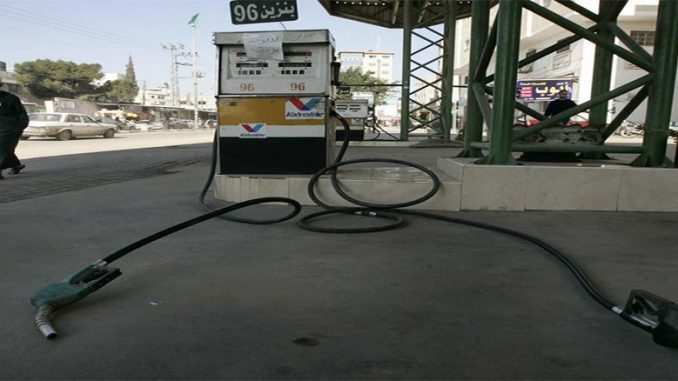
Egypt today increased gasoline and diesel prices in the second fuel hike since a currency floatation in November last year.
Fuel price increases had been widely expected as part of Egypt’s $12 billion International Monetary Fund loan agreement, but the hikes were bigger than anticipated by Egyptians already hit by a weaker currency and higher living costs.
Petroleum Minister Tarek El Molla told Reuters the price of 92-octane gasoline rose to five Egyptian pounds ($0.2767) from 3.5 pounds per litre and diesel and 80-octane, the most commonly used fuel category, increased to 3.65 pounds per litre from 2.35 pounds per litre.
He said the total amount of subsidies for petroleum products in 2017-2018 will decrease to 110 billion Egyptian pounds ($6.09 billion) from 145 billion Egyptian pounds ($8.02 billion).
The government also doubled the price of cooking gas cylinders to 30 Egyptian pounds ($1.66) from 15 pounds per cylinder.
Egypt’s economy has been struggling since a 2011 uprising drove foreign investors and tourists away.
Egypt borrows $200m from Afreximbank
Amid Egypt’s economic crisis, Banque Misr, Egypt’s second largest state-run bank, signed yesterday (June 28) a $200 million loan agreement with the African Export- Import Bank (Afreximbank), Anadolu Agency reported.
According to a statement issued by Banque Misr, the agreement aims at supporting and financing Egypt’s small and medium-sized enterprises (SMEs) as well as strengthening the bank’s foreign currency resources.
The three-year term facility will also aim to fund the light manufacturing activities in the country.
The money is scheduled to be disbursed in July, according to the statement.
The transaction, the first between Banque Misr and Afreximbank, marks the beginning of an increased collaboration between the two financial institutions, paving the way for Banque Misr’s robust presence in Africa, in addition to its current representation in Lebanon, UAE, France, Germany and China.
In late April, Afreximbank granted a $300-million financing facility to the National Bank of Egypt (NBE), Egypt’s largest state-run bank, to support the country’s industrialisation efforts.
Afrixembank has granted credit facilities worth $13.8 billion to many Egyptian companies, which represent 33.7 per cent of the total funds approved by the bank.
Over the past few years, Egyptian private and public banks have started borrowing from international financial institutions, in an effort to resolve the severe foreign currency crisis that has hit the country following a sharp decline in the Suez Canal revenues, Egyptian remittances, tourism and exports.
According to the Egyptian planning ministry, the country’s external debt reached $71.8 billion last February, compared to $67 billion in late 2016.



